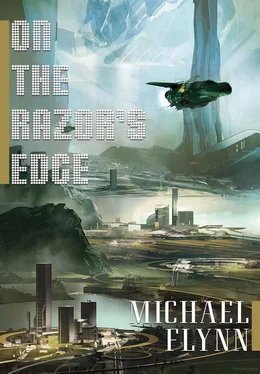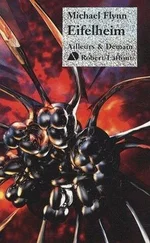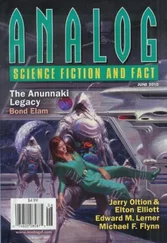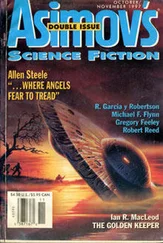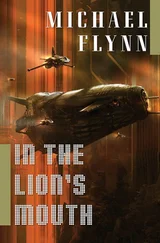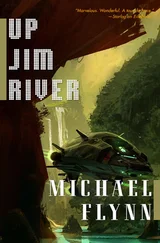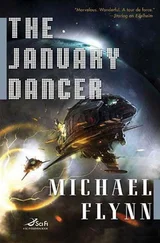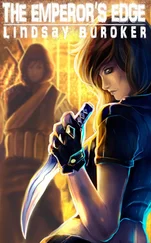Nowhere, it seemed. And so, deprived of true aliens, the men of Terra had fashioned their own. The great science-wallahs of old who had touched the genes of plants and of animals touched even those of men themselves, transforming disappointments to joy and shaping each new world to their partiality. New kinds of men arose and dreamed new kinds of dreams. They scattered Arks before them like dandelion seeds to quicken worlds they themselves would never live to tread.
For a time, great fleets of suspension ships sought to relieve population pressures at home by carting off the excess. That did not work. A vigorous age reproduces with vigor; as those whose cradles are barren are also barren in other ways. Elsetime did people search out nooks where they would be free to live as they wished. That did not work, either, for men bring oppression with them wherever they go and those who find their dreams will press them upon their children. At still other times, they had been forced out against their will for reasons economic, political, or judicial.
In the end it was sheer osmosis that populated the Spiral Arm, a complex stew of curiosity, greed, displacement, persecution, and deliberate exploitation. It was a thin gruel. A random sampling of stars would find nothing, not even death, for a thing must live before it can die. Not every star is caressed by the tendrils of Electric Avenue, and so their worlds spin forever beyond reach, no matter how close they might lie as the crow does fly. And even within the network are worlds untouched by the Arks: worlds in eddies and cul-de-sacs and whorls or up blind alleys, worlds so unpromising, so meanly endowed with even the inanimate, that there was little point to sprinkling the animate upon them: superjovians whirling like dervishes about a fire; marsbodies too weak to retain their warming blankets; worlds wrapped so tightly that their very air pressed and crushed and incinerated even the hope of life. But here and there: oases that could be nurtured and cultivated into suitable—sometimes barely suitable—homes. Out into this vast, untouched, and untouchable desert, mankind spread through the creases of space. They went sometimes with heads cocked high, sometimes in shackles. Sometimes because they had everything to gain, sometimes because they had nothing to lose.
But they went.
* * *
All his life—to the extent he remembered a life—the scarred man had dreamed of Terra. It was the grail of all those huddled in the Terran Corners of the Periphery; those who had not forgotten the days of old, who preserved the languages and lore in their Terran Schools when everyone else had forgotten, who loved the memory of a world they had never seen. Man was at home on a thousand planets, but only one was the home of man.
Every Terran yearned to make the hajj, and “Next year on Terra” was a common valediction among them. The Brotherhood schemed and plotted to return all Terrans to the home-world. Some few thought to reignite past glories in the face of the Names, but more simply desired to nestle in the mother world’s arms: to see “the Taj and the Wall and the Mount of Many Faces,” to visit the Monument of the Lions in the pass of Jelep La, or the wreckage of the Beanstalks brutally scythed by the conquering Names of Dao Chetty. “Twelve-gated Terra,” she had been called, for a dozen of these massive elevators had girdled the globe and had perceptibly slowed the world’s rotation. Most of all: to visit Iracatanam Antapakirantamthe, the Capital of All the Worlds.
As Gidula’s ship crossed the orbits of High Wonsing and Tin Wonsing and passed within distant sight of the glorious rings of Tousing and the somber-striped king of planets, Muksing, the scarred man found his breath growing shorter and his heart beating stronger. He knew these worlds by older names—Ketu and Raku, Cani and Viyazan—and the Pedant mulled names older still, bestowed by cultures near forgotten. At times, the feelings welled up uncontrollably and he would break into tears.
His companions, far from laughing, often wept with him. He had found them easily moved, as often by others’ emotions as by their own. Just as a play in shaHmat might inspire them to sudden rage, so a homecoming could induce sudden tears. And so a mood at once festive and romantic suffused the staff and crew of White Comet . Five recalled a woman he had known in Ketchell; Twelve spoke longingly of sailboats on Lake Montang. Twenty-four remembered hang gliding in the Angies. Even Gidula grew wistful and from time to time pulled a small box from the recesses of his clothing and inspected within it a lock of hair.
But she was called Zãddigah now, was Terra, a name bestowed long ago by her Dao Chettian masters. It meant something like “dirt-ball renewed.” And, as if world had changed with word, she little resembled those meticulously labeled ancient maps copied and recopied in Terran Corners across the Periphery. She seemed to wear a powdered wig.
“Clouds?” Donovan guessed.
“Ice,” Gidula told him.
* * *
Oceans had receded, and freshwater lakes had appeared in unlikely places. Deserts and taiga and scrubland dominated the terrain and the cities huddled against rivers, lakefronts, estuaries. Gidula’s shuttles coasted northeastward high over the Megan desert, across the open waters of a circular, nearly enclosed sea, skirting the edge of the Fladda scrublands, before entering the substratospheric traffic corridors and turning north-northeast along the open boreal woodlands that lined the eastern edge of the north-south landmass.
The city of Ketchell formed a crescent around a large, natural harbor where the land turned east. Towering larches and spruce, interspersed with birch and ash and broken by pale-green meadows, dominated the mainland behind her. Beyond that: a glimpse of taiga and, on the far horizon, a gleaming white rime of glaciers. Then the shuttles swooped in low for their final approaches and the northlands dipped beneath the horizon. Tubeways ran off south and southwest.
None of the roads from Ketchell ran north.
* * *
Gidula’s headquarters lay some leagues west of the city, nestled in a bowl dominated on all sides by abrupt heights. A southbound river, the Tware, ran through it along its eastern marge, entering and leaving through gaps in the encircling hills. A second river, called the Lye, ran the gantlet between a pair of sheer limestone cliffs on the southern edge of the bowl before tumbling into the Tware.
“It does not seem very defensible,” Donovan told Gidula as they watched the approach on a screen in the lounge.
The magpies who surrounded the party chuckled and Gidula arched an eyebrow. “That depends on who is playing defense.”
“It’s dominated by high ground on all sides.” Inner Child, of course, had noted that right off.
“Ah, but first an enemy would have to seize that high ground. Those farmlands may not be as open as they appear. Really, Gesh, who is there to attack my compound? There has not been a war on Zãddigah since time unremembered. This is not the Periphery. We keep a tighter rein on anarchy here than they do across the Rift.”
Donovan was unruly enough himself not to relish the thoughts of leashes. But he admitted that things might look different to a man whose home has been smashed and plundered by raiders. Tyrants were often welcomed with open arms.
“Other Shadows,” he suggested. “I’ve heard there is a war on.”
The Old One smiled. “But against a Shadow attack what possible fortress might matter?”
* * *
A small, flat area on the eastern bank of the River Tware provided a landing apron for the shuttles. As each one grounded, tugs moved her into hangars excavated under the cliffs of Mount Lefn. The planetfallmen handled things smoothly, and soon Gidula, his servants, his magpies, and his opportune guest had forgathered in a broad lounge within the cliff, where the servants broke open wardrobes and pulled out a variety of festive clothing with which to drape their master and his people.
Читать дальше
